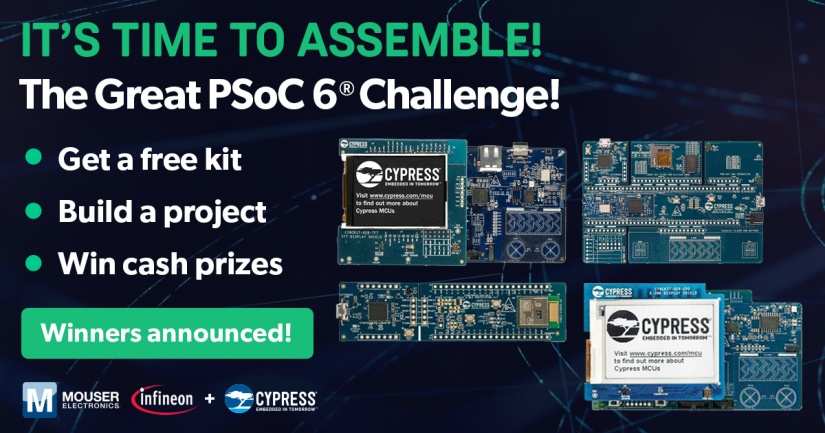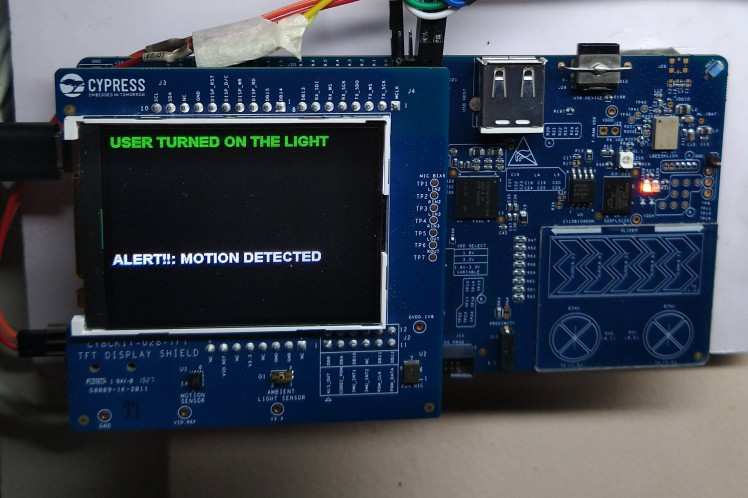The Great PSoC 6 Design Challenge Winners Announced!
We were extremely excited to partner with our good friends at Cypress Semiconductor (now an Infineon company) for the Great PSoC 6 Design Challenge. The goal was to create an Internet of Things project using PSoC hardware, and you rose to the challenge. Project submissions absolutely wowed us, both in quality and quantity!
Great PSoC 6 Design Challenge Winners Announced

The stakes were high, and the calibre of contest submissions even higher. We sincerely thank each and everyone one of you that participated. Although you're all winners in our book, the Great PSoC 6 Design Challenge winners have been picked!
Without further ado, the winners...
Coming in at first place is Bastiaan Slee. Bastiaan developed a PSoC 6 Audio Sensor project which records audio samples with the PDM microphone and then converts it to PCM data. The data then goes through a Fast Fourier Transform with HANN windowing, which then splits the audio data into octaves. Based on A/C/Z weighting, the audio data is then further calculated into data that represents what our ears do actually hear.
It carries loads of applications such as identifying animal noises or anything else you can think of. It employs PDM and PCM audio processing using the ModusToolbox. A fine example of what can be achieved with the Cypress PSoC 6 WiFi-BT Pioneer Kit!
Sliding in at second place is Naveen with an awesome voice recognition project that detects voice commands and takes actions accordingly. Naveen decided to port the Tensorflow Lite Micro SDK to the PSoC6 MCU with ModusToolBox using a PSoC6 BLE Pioneer Kit. He built two applications. The first application is used to collect data and the second application takes voice commands and triggers actions that can be used in home automation.

And lastly but certainly not least, Vinay Gowda places third with an inventive smart home concept that employs Capsense on the PSoC6 WiFi-BT Pioneer Kit. Vinay's project allows the user to monitor the intruder, whenever the motion and noise sensors are triggered. An ambient light sensor-based lighting controller helps to save energy by turning off the lights when there is enough natural light. The Capsense buttons give the project a 'smart' feel and reduce the efforts to press the switches.
A huge and well-deserved congrats to the three winners and a major thank you to all participants! Check out the complete roster of PSoC 6 Design Challenge projects and stay tuned for more contests!














































Leave your feedback...